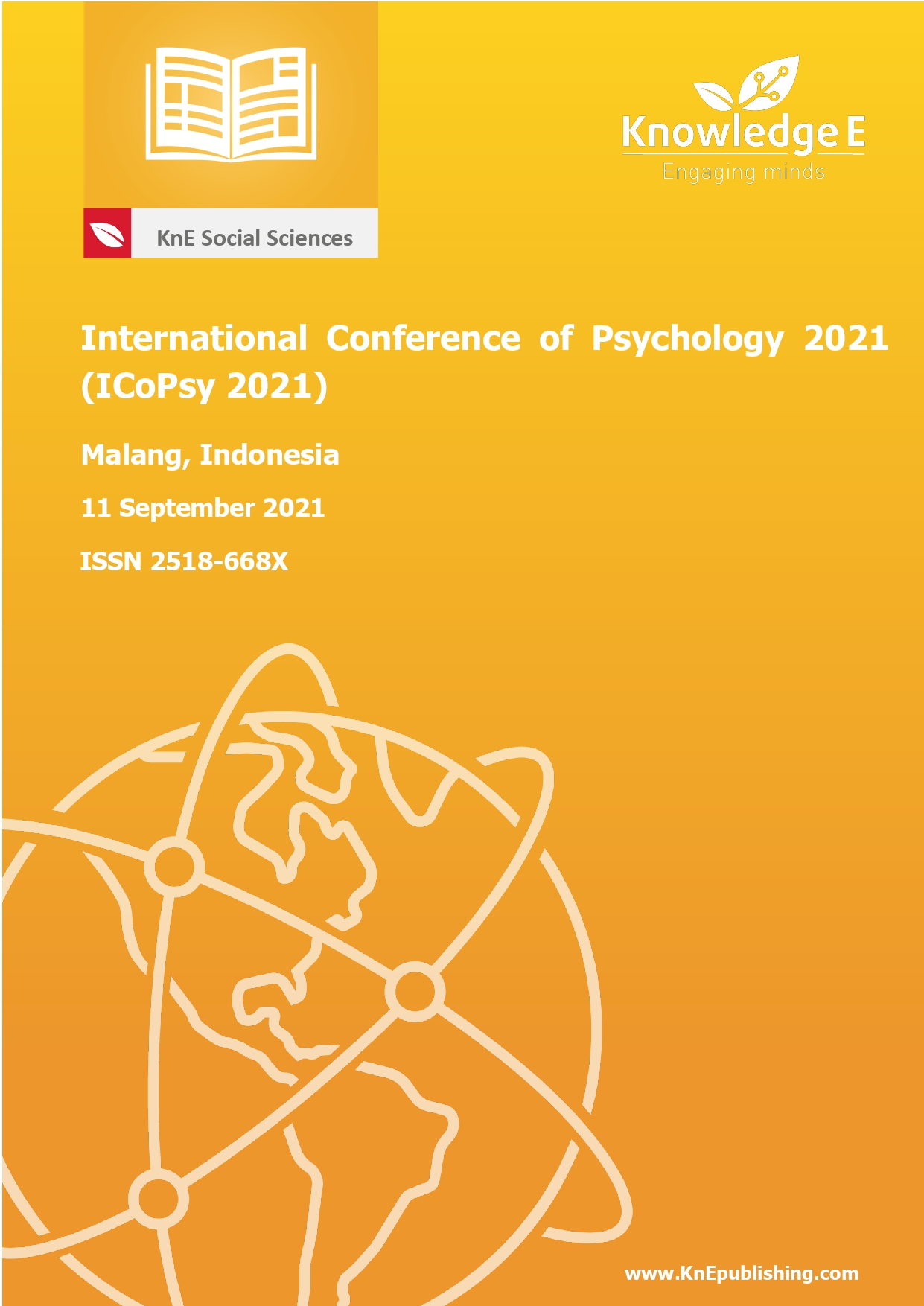Attitude Towards Life and Spiritual Health as Predictors of Psychological Well-Being in State University of Malang Students Who Work Part-Time
DOI:
https://doi.org/10.18502/kss.v7i1.10199Abstract
The objectives of this study were to: (i) explore the psychological well-being of part-time working students at the State University of Malang; (ii) examine the life attitude of these students; (iii) investigate their spiritual health; and (iv) determine whether life attitude and spiritual health can be used to predict psychological well-being of part-time working students at the State University of Malang. This was a quantitative study, which used a descriptive design and was conducted with 85 students recruited through purposive sampling. The instruments used included a psychological well-being scale, life attitude scale, and spiritual health scale. Data were analyzed descriptively, and inferential analysis was carried out using Product Moment. The findings indicated that there was an impact between the three variables. Thus, the results showed that: (i) most of the students had moderate psychological well-being, life attitude and spiritual health; and (ii) there was a significant association between psychological well-being and spiritual health (p = 0.035), but not between psychological well-being and life attitude (p = 0.726). The results suggest that, for a student with a part-time job to have good psychological well-being, they need to enhance their positive life attitude and positive spiritual health.
Keywords: psychological well-being, life attitude, spiritual health, part-time work
References
[2] Puspitadewi NWS. Hubungan antara Stress dan Motivasi Kerja pada Mahasiswa yang Bekerja Paruh Waktu. JPTT. 2012 Feb 19;2(2):126. doi: 10.26740/jptt.v2n2.p126-134
[3] Udhayakumar P, Illango P. Psychological wellbeing among college students. April 2018. 2017;3(2):79–89.
[4] Ramadhani T, Djunaedi D, Sismiati S. A. KESEJAHTERAAN PSIKOLOGIS (PSYCHOLOGICAL WELL-BEING) SISWA YANG ORANGTUANYA BERCERAI (Studi Deskriptif yang Dilakukan pada Siswa di SMK Negeri 26 Pembangunan Jakarta). insight. 2016 Jan 30;5(1):108. doi: 10.21009/INSIGHT.051.16
[5] Edwards DJ. Sport psychological skills training and psychological well-being in youth athletes [PhD Thesis]. [Pretoria]: University of Pretoria; 2008.
[6] Ryff CD. Happiness is everything, or is it? Explorations on the meaning of psychological well-being. Journal of Personality and Social Psychology. 1989;57(6):1069–81.doi: 10.1037/0022-3514.57.6.1069
[7] Chou M-J, Tsai S-S, Hsu H-M, Wu H-T. Research on correlation between the life attitude and well-being—with spiritual health as the mediator. European Journal of Research in Social Sciences Vol. 2016;4(3):76–88.
[8] Reker GT, Peacock EJ, Wong PTP. Meaning and Purpose in Life and Wellbeing: a Life-span Perspective. Journal of Gerontology. 1987 Jan 1;42(1):44–9. doi: 10.1093/geronj/42.1.44
[9] Jaberi A, Momennasab M, Yektatalab S, Ebadi A, Cheraghi MA. Spiritual Health: A Concept Analysis. J Relig Health. 2019 Oct;58(5):1537–60. doi: 10.1007/s10943-017- 0379-z
[10] Fisher J. Development and Application of a Spiritual Well-Being Questionnaire Called SHALOM. Religions. 2010 Dec 9;1(1):105–21. doi: 10.3390/rel1010105
[11] Ryff CD. Psychological Well-Being in Adult Life. Curr Dir Psychol Sci. 1995 Aug;4(4):99–104. doi: 10.1111/1467-8721.ep10772395 [12] Sugiyono S. Metode penelitian administrasi. 5th ed. Jakarta: Alfabeta; 2008. 334 p.
[13] Gunawan J. ENSURING TRUSTWORTHINESS IN QUALITATIVE RESEARCH. Belitung Nurs J. 2015 Dec 7;1(1):10–1. doi: 10.33546/bnj.4
[14] Klamut R. Assessment of decisions in the context of life attitudes. Journal for Perspectives of Economic Political and Social Integration. 2012 Jan;18(1–2):159-176. doi: 10.2478/v10241-012-0031-5 DOI

